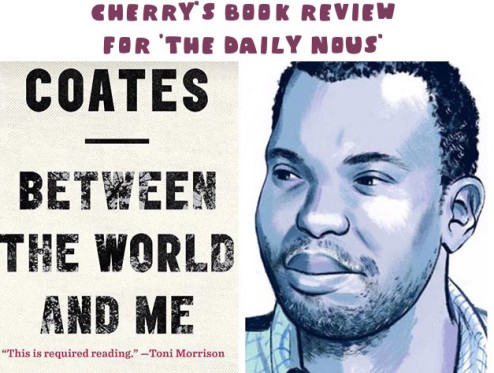The following was published at the Daily Nous for their “Philosophers On” Series (Aug. 18, 2015).
The Conscious Gospel and its Shortcomings
In the black community of the 1980’s and 1990’s, we had a term to refer to folks who understood the social structure, were in touch with black history, and who knew the truth and were not blinded by the lies of white supremacy. We called them “conscious.” We had our conscious rappers (i.e. Sista Soulja, KRS-One, and Public Enemy), our conscious artists (usually spoken word poets), and the conscious religious folks (i.e. The Nation of Islam and Five Percenters). Whenever these conscious folks rapped, spoke, or taught, you heard “da truth” as well as their love for creating awareness and for imparting knowledge to the people they loved.
That conscious spirit is still alive today in 2015 through the music of artists like Kendrick Lamar and through the phrase “stay woke” — which means to stay informed and aware despite the B.S. that may attempt to convince you otherwise. That conscious spirit is also present in Ta-Nehisi Coates’ Between the World and Me.Coates’ text is heavy in consciousness. It is something he inherited. In Section I, he describes how his parents were always encouraging him to be politically conscious; something he describes as “much as a series of actions as a state of being, a constant questioning, questioning as ritual, questioning as exploration rather than the search for certainty.” His conscious spirit during college was clear by his own recognition that “I was made for the library, not the classroom.” In Between the World and Me, Coates attempts to impart this consciousness to his son and to us, the reader. He achieves in speaking the truth.
In section II, Coates breaks down the Civil War and slavery with the aptitude of a historian and the social relevance of a sociologist noting, “This lie of the Civil War is the lie of innocence.” With words like “‘Good Intentions’ is a hall pass through history, a sleeping pill that ensures the Dream,” and “Black life is cheap, but in America black bodies are a natural resource of incomparable value,” Coates is like a conscious spoken word artist whose words make you want to shake your head and snap your fingers in agreement.
Coates makes a conscious call to us. He urges, “You must struggle to remember this past in all its nuance, error and humanity”, “Do not accept the lie. Do not drink the Poison” and “What I wanted for you was to grow into consciousness. I resolved to hide nothing from you.” This consciousness was important to his survival and perhaps it will aid in our own. He notes, “I did not perish in the agony of not knowing.” In describing the joy of study and struggle, Coates writes:
“The changes have awarded me a rapture that comes only when you can no longer be lied to, when you have rejected the Dream… the changes have taught me how to best exploit that singular gift of study, to question what I see, then to question what I see after that, because the questions matter as much, perhaps more than, the answers.”
Here Coates is following the Socratic tradition of self-examination and critical interrogation of the world. When we live the philosophical life, we become concerned with the questions as much as we are with the answers. I think the consciousness Coates preaches throughout the text is important, but I wonder if it’s enough.
Between the World and Me is a message of consciousness directed to his son as he approaches adolescence and to us as we rise to moral and civic maturity. This consciousness is the answer to surviving the struggle and a design for how to live in a black body. As a philosopher and critical citizen, I love interrogation and awareness but I find something insufficient in Coates’ overall message. I blame Malcolm X.
Although Malcolm X preached about how important consciousness was, that consciousness ushered in economic development, moral perfection, and physical health. Knowledge has both intrinsic and extrinsic value. Knowledge is not a library of facts that only makes us smile at night and makes the oppressor terrified. No! It doesn’t work that way. Consciousness is the foundation to a radical liberation, not the beginning and the end of it.
Fear is a recurring word used throughout the text. Coates admits he has it and may have imparted it to his son. But what is consciousness if what we know only makes us afraid and powerless?
Just when I think Coates will take us beyond the intrinsic value of consciousness and into the realm of black power, he describes power as a “deep knowledge of how fragile everything… really is.” For Coates, black power is “more gorgeous than any voting rights bill… it’s a kind of understanding that illuminates all the galaxies.” Black power is beautiful but it cannot be restricted to only consciousness nor can this consciousness replace the action and other ingredients that we need for true liberation. Awareness of our fear, vulnerability, and fragility is important but it alone is not preventing black people from getting shot by the police, disproportionately incarcerated, or from being caught up in a constant cycle of poverty.
Between the World and Me is an enlightening analysis that leaves us knowing and understanding more than we knew before, but it is an insufficient guide for how we can navigate a world that has become a police state, where the killing of black bodies is excusable, and where fear is commonplace.
Consciousness makes us aware of the fact that we need more than itself to help us survive and thrive in the struggle.
